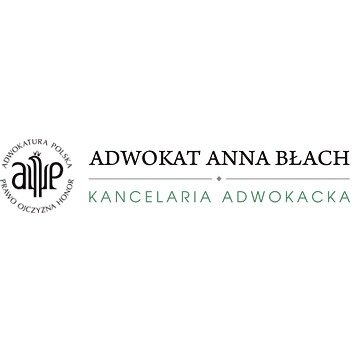Best Creditor Lawyers in Warsaw
Share your needs with us, get contacted by law firms.
Free. Takes 2 min.
List of the best lawyers in Warsaw, Poland
About Creditor Law in Warsaw, Poland
Creditor law in Warsaw, Poland, governs the relationship between creditors and debtors within the jurisdiction. It involves various legal rights and obligations that arise when one party is owed money by another. This field of law encompasses debt collection, bankruptcy proceedings, and the enforcement of financial judgments. The legal framework aims to protect creditors' rights while also ensuring debtors are treated fairly. With Warsaw being the capital city of Poland, it is home to numerous businesses and individuals who may find themselves involved in creditor-debtor disputes, necessitating a robust understanding of creditor law and its applications.
Why You May Need a Lawyer
Engaging a lawyer specializing in creditor law can be crucial for several reasons. If you are a creditor seeking to recover debts owed to you, a lawyer can assist in navigating the legal procedures and regulations involved in debt collection. They can help in drafting and negotiating settlement agreements, initiating court proceedings to obtain judgments against debtors, and enforcing those judgments effectively.
Conversely, if you are a debtor facing claims from creditors, legal representation can be invaluable in protecting your rights and interests. Lawyers can provide guidance on negotiating repayment terms, contesting unjust claims, and exploring options under insolvency law. Other situations where legal assistance might be necessary include disputes over the validity of debts, fraudulent transfers, and securing collateral or guarantees to protect transactions.
Local Laws Overview
In Warsaw, creditor law is primarily governed by Polish civil law, with specific statutes addressing the rights and obligations of creditors and debtors. Key legal frameworks include the Polish Civil Code, the Insolvency and Restructuring Law, and the Act on Court Enforcement Proceedings. These laws establish procedures for debt collection, creditor hierarchy in bankruptcy cases, and enforcement mechanisms such as garnishments and seizures. There are regulations aimed at consumer protection, which safeguard debtors from unfair practices. The court system in Warsaw provides avenues for resolution of disputes, including mediation as an alternative form of conflict resolution.
Frequently Asked Questions
What are my options if a debtor does not repay a debt?
If a debtor fails to repay a debt, creditors may pursue legal action through the courts to obtain a ruling requiring payment. Creditors can also engage in negotiations or use debt collection agencies to recover the amount owed.
What is the process for enforcing a court judgment in Warsaw?
Once a court judgment is obtained, the creditor may enforce it through court bailiffs, who can seize assets, garnish wages, or take other actions to satisfy the debt. Enforcement proceedings are governed by the Polish Civil Procedure Code.
Can creditors claim interest on unpaid debts?
Yes, creditors in Poland may claim statutory interest on unpaid debts from the date of default. The rate is prescribed by the Ministry of Finance and is meant to compensate for the delay in payment.
What are the legal protections for debtors in Warsaw?
Debtors are protected by consumer rights laws, which prevent abusive and unfair collection practices. Debtors can challenge unfair terms in contracts and negotiate through formal channels if they face financial hardship.
When can a creditor initiate bankruptcy proceedings against a debtor?
A creditor can file for bankruptcy proceedings if the debtor is insolvent, meaning they cannot meet their financial obligations when due. The legal thresholds and procedures are outlined in the Insolvency and Restructuring Law.
Can a creditor seize assets located outside of Poland?
Enforcement of judgments may extend to assets in other jurisdictions through international legal cooperation agreements, but this can be complex and often requires legal expertise in international law.
What is the role of mediation in resolving creditor-debtor disputes?
Mediation offers an alternative dispute resolution method that can be pursued before or during court proceedings. It involves a neutral third party helping both sides reach a mutually agreeable solution.
How long does a creditor have to initiate legal action for debt recovery?
The statute of limitations for initiating legal action in Poland is generally six years from the date the debt became due. For certain consumer-related claims, this period is often shorter.
Are there special considerations for foreign creditors in Poland?
Foreign creditors must navigate additional procedural requirements, such as obtaining translations of documents and dealing with cross-border legal complexities. Local legal assistance is often advisable.
What are the risks of pursuing aggressive collection tactics?
Aggressive tactics can lead to legal penalties and damage to reputation. Polish law enforces strict consumer protection measures to ensure fair treatment of debtors.
Additional Resources
For those seeking further information or legal assistance in creditor matters, the following resources can be helpful:
- The Polish Ministry of Justice provides guidelines and updates on legal procedures.
- The National Debt Register offers services and advice for creditors related to debt collection.
- The Warsaw Bar Association can help locate qualified legal professionals in the field of creditor law.
- Local chambers of commerce and trade organizations may provide support and networking opportunities for businesses dealing with creditor issues.
Next Steps
If you find yourself in a situation requiring legal assistance for creditor matters in Warsaw, it's advisable to consult with a specialized attorney who understands the intricacies of Polish creditor law. Begin by gathering all relevant documentation related to your case, such as contracts, correspondence, and any previous legal filings.
Contact a law firm or local legal service provider experienced in creditor-debtor relations. Many offer initial consultations to discuss your situation and explore potential strategies for resolution. Staying informed about both creditor rights and debtor protections ensures you can make well-informed decisions moving forward.
Lawzana helps you find the best lawyers and law firms in Warsaw through a curated and pre-screened list of qualified legal professionals. Our platform offers rankings and detailed profiles of attorneys and law firms, allowing you to compare based on practice areas, including Creditor, experience, and client feedback.
Each profile includes a description of the firm's areas of practice, client reviews, team members and partners, year of establishment, spoken languages, office locations, contact information, social media presence, and any published articles or resources. Most firms on our platform speak English and are experienced in both local and international legal matters.
Get a quote from top-rated law firms in Warsaw, Poland — quickly, securely, and without unnecessary hassle.
Disclaimer:
The information provided on this page is for general informational purposes only and does not constitute legal advice. While we strive to ensure the accuracy and relevance of the content, legal information may change over time, and interpretations of the law can vary. You should always consult with a qualified legal professional for advice specific to your situation.
We disclaim all liability for actions taken or not taken based on the content of this page. If you believe any information is incorrect or outdated, please contact us, and we will review and update it where appropriate.













